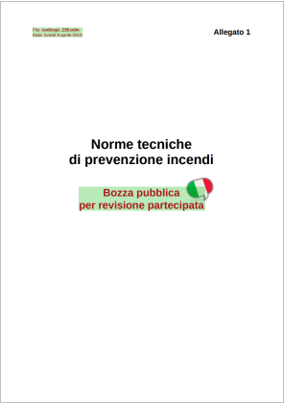// Documenti disponibili n: 46.592
// Documenti scaricati n: 36.660.479
ID 14040 | 17.07.2021
Convenzione ILO C35 Assicurazione-vecchiaia (industria, ecc.), 1933.
Ginevra, 08 giugno 1933
The General Conference of the International Labour Organisation, having been convened at Geneva by the Governing Body of the International Labour Office, and having met in its Seventeenth Session on 8 June 1933, and having decided upon the adoption of certain proposals with regard to compulsory old-age insurance, which is included in the second item on the agenda of the Session, and having determined that these proposals shall take the form of an international Convention, adopts this twenty-ninth day of June of the year one thousand nine hundred and thirty-three the following Convention, which may be cited as the Old-Age Insurance (Industry, etc.) Convention, 1933, for ratification by the Members of the International Labour Organisation, in accordance with the provisions of the Constitution of the International Labour Organisation:
Article 1
Each Member of the International Labour Organisation which ratifies this Convention undertakes to set up or maintain a scheme of compulsory old-age insurance which shall be based on provisions at least equivalent to those contained in this Convention.
Article 2
1. The compulsory old-age insurance scheme shall apply to manual and non-manual workers, including apprentices, employed in industrial or commercial undertakings or in the liberal professions, and to outworkers and domestic servants.
2. Provided that any Member may in its national laws or regulations make such exceptions as it deems necessary in respect of:
(a) workers whose remuneration exceeds a prescribed amount and, where national laws or regulations do not make this exception general in its application, any non-manual workers engaged in occupations which are ordinarily considered as liberal professions;
(b) workers who are not paid a money wage;
(c) young workers under a prescribed age and workers too old to become insured when they first enter employment;
(d) outworkers whose conditions of work are not of a like nature to those of ordinary wage earners;
(e) members of the employer's family;
(f) workers whose employment is of such a nature that, its total duration being necessarily short, they cannot qualify for benefit, and persons engaged solely in occasional or subsidiary employment;
(g) invalid workers and workers in receipt of an invalidity or old-age pension;
(h) retired public officials employed for remuneration and persons possessing a private income, where the retirement pension or private income is at least equal to the old-age pension provided by national laws or regulations;
(i) workers, who, during their studies, give lessons or work for remuneration in preparation for an occupation corresponding to such studies;
(j) domestic servants employed in the household of agricultural employers.
3. Provided also that there may be exempted from liability to insurance persons who, by virtue of any law, regulations or special scheme, are or will become entitled to old-age benefits at least equivalent on the whole to those provided for in this Convention.
4. This Convention does not apply to seamen and sea fishermen.
Article 3
National laws or regulations shall, under conditions to be determined by them, either entitle persons formerly compulsorily insured who have not attained the pensionable age to continue their insurance voluntarily or entitle such persons to maintain their rights by the periodical payment of a fee for the purpose, unless the said rights are automatically maintained or, in the case of married women, the husband, if not liable to compulsory insurance, is permitted to insure voluntarily and thereby to qualify his wife for an old-age or widow's pension.
Article 4
An insured person shall be entitled to an old-age pension at an age which shall be determined by national laws or regulations but which, in the case of insurance schemes for employed persons, shall not exceed sixty-five.
Article 5
The right to a pension may be made conditional upon the completion of a qualifying period, which may involve the payment of a minimum number of contributions since entry into insurance and during a prescribed period immediately preceding the happening of the event insured against.
Article 6
1. An insured person who ceases to be liable to insurance without being entitled to a benefit representing a return for the contributions credited to his account shall retain his rights in respect of these contributions.
2. Provided that national laws or regulations may terminate rights in respect of contributions on the expiry of a term which shall be reckoned from the date when the insured person so ceased to be liable to insurance and which shall be either variable or fixed.
(a) Where the term is variable, it shall not be less than one-third (less the periods for which contributions have not been credited) of the total of the periods for which contributions have been credited since entry into insurance.
(b) Where the term is fixed, it shall in no case be less than eighteen months and rights in respect of contributions may be terminated on the expiry of the term unless, in the course thereof, a minimum number of contributions prescribed by national laws or regulations has been credited to the account of the insured person in virtue of either compulsory or voluntarily continued insurance.
Article 7
1. The pension shall, whether or not dependent on the time spent in insurance, be a fixed sum or a percentage of the remuneration taken into account for insurance purposes or vary with the amount of the contributions paid.
2. Where the pension varies with the time spent in insurance and its award is made conditional upon the completion by the insured person of a qualifying period, the pension shall, unless a minimum rate is guaranteed, include a fixed sum or fixed portion not dependent on the time spent in insurance; where the pension is awarded without any condition as to the completion of a qualifying period, provision may be made for a guaranteed minimum rate of pension.
3. Where contributions are graduated according to remuneration, the remuneration taken into account for this purpose shall also be taken into account for the purpose of computing the pension, whether or not the pension varies with the time spent in insurance.
Article 8
1. The right to benefits may be forfeited or suspended in whole or in part if the person concerned has acted fraudulently towards the insurance institution.
2. The pension may be suspended in whole or in part while the person concerned--
(a) is in employment involving compulsory insurance;
(b) is entirely maintained at the public expense; or
(c) is in receipt of another periodical cash benefit payable by virtue of any law or regulations concerning compulsory social insurance, pensions or workmen's compensation for accidents or occupational diseases.
Article 9
1. The insured persons and their employers shall contribute to the financial resources of the insurance scheme.
2. National laws or regulations may exempt from liability to pay contributions--
(a) apprentices and young workers under a prescribed age;
(b) workers who are not paid a money wage or whose wages are very low.
3. Contributions from employers may be dispensed with under laws or regulations concerning schemes of national insurance not restricted in scope to employed persons.
4. The public authorities shall contribute to the financial resources or to the benefits of insurance schemes covering employed persons in general or manual workers.
5. National laws or regulations which, at the time of the adoption of this Convention, do not require contributions from insured persons may continue not to require such contributions.
Article 10
1. The insurance scheme shall be administered by institutions founded by the public authorities and not conducted with a view to profit, or by State insurance funds.
2. Provided that national laws or regulations may also entrust its administration to institutions founded on the initiative of the parties concerned or of their organisations and duly approved by the public authorities.
3. The funds of insurance institutions and State insurance funds shall be administered separately from the public funds.
4. Representatives of the insured persons shall participate in the management of insurance institutions under conditions to be determined by national laws or regulations, which may likewise decide as to the participation of representatives of employers and of the public authorities.
5. Self-governing insurance institutions shall be under the administrative and financial supervision of the public authorities.
Article 11
1. The insured person or his legal representatives shall have a right of appeal in any dispute concerning benefits.
2. Such disputes shall be referred to special tribunals which shall include judges, whether professional or not, who are specially cognisant of the purposes of insurance and the needs of insured persons or are assisted by assessors chosen as representative of insured persons and employers respectively.
3. In any dispute concerning liability to insurance or the rate of contribution, the employed person and, in the case of schemes providing for an employer's contribution, his employer shall have a right of appeal.
Article 12
1. Foreign employed persons shall be liable to insurance and to the payment of contributions under the same conditions as nationals.
2. Foreign insured persons and their dependants shall be entitled under the same conditions as nationals to the benefits derived from the contributions credited to their account.
3. Foreign insured persons and their dependants shall, if nationals of a Member which is bound by this Convention and the laws or regulations of which therefore provide for a State subsidy towards the financial resources or benefits of the insurance scheme in conformity with Article 9, also be entitled to any subsidy or supplement to or fraction of a pension which is payable out of public funds.
4. Provided that national laws or regulations may restrict to nationals the right to any subsidy or supplement to or fraction of a pension which is payable out of public funds and granted solely to insured persons who have exceeded a prescribed age at the date when the laws or regulations providing for compulsory insurance come into force.
5. Any restrictions which may apply in the event of residence abroad shall only apply to pensioners and their dependants who are nationals of any Member bound by this Convention and reside in the territory of any Member bound thereby to the extent to which they apply to nationals of the country in which the pension has been acquired. Provided that any subsidy or supplement to or fraction of a pension which is payable out of public funds may be withheld.
Article 13
1. The insurance of employed persons shall be governed by the law applicable at their place of employment.
2. In the interest of continuity of insurance exceptions may be made to this rule by agreement between the Members concerned.
Article 14
Any Member may prescribe special provisions for frontier workers whose place of employment is in its territory and whose place of residence is abroad.
Article 15
In countries which, at the time when this Convention first comes into force, have no laws or regulations providing for compulsory old-age insurance, an existing non-contributory pension scheme which guarantees an individual right to a pension under the conditions defined in Articles 16 to 22 hereinafter shall be deemed to satisfy the requirements of this Convention.
Article 16
Pensions shall be awarded at an age which shall be determined by national laws or regulations but which shall not exceed sixty-five.
Article 17
The right to a pension may be made conditional upon the claimant's having been resident in the territory of the Member for a period immediately preceding the making of the claim. This period shall be determined by national laws or regulations but shall not exceed ten years.
Article 18
1. A claimant shall be entitled to a pension if the annual value of his means does not exceed a limit which shall be fixed by national laws or regulations with due regard to the minimum cost of living.
2. Means up to a level which shall be determined by national laws or regulations shall be exempted for the purpose of the assessment of means.
Article 19
The rate of pension shall be an amount which, together with any means of the claimant in excess of the means exempted, is at least sufficient to cover the essential needs of the pensioner.
Article 20
1. A claimant shall have a right of appeal in any dispute concerning the award of a pension or the rate thereof.
2. The appeal shall lie to an authority other than the authority which gave the decision in the first instance.
Article 21
1. Foreigners who are nationals of a Member bound by this Convention shall be entitled to pensions under the same conditions as nationals.
2. Provided that national laws or regulations may make the award of a pension to foreigners conditional upon their having been resident in the territory of the Member for a period which shall not exceed by more than five years the period of residence prescribed for nationals.
Article 22
1. The right to a pension may be forfeited or suspended in whole or in part if the person concerned--
(a) has been sentenced to imprisonment for a criminal offence;
(b) has obtained or attempted to obtain a pension by fraud; or
(c) has persistently refused to earn his living by work compatible with his strength and capacity.
2. The pension may be suspended in whole or in part while the person concerned is entirely maintained at the public expense.
Article 23
Subject to the provisions of paragraph 5 of Article 12, this Convention does not refer to the maintenance of pension rights in the event of residence abroad.
Article 24
The formal ratifications of this Convention under the conditions set forth in the Constitution of the International Labour Organisation shall be communicated to the Director-General of the International Labour Office for registration.
Article 25
1. This Convention shall be binding only upon those Members whose ratifications have been registered with the International Labour Office.
2. It shall come into force twelve months after the date on which the ratifications of two Members of the International Labour Organisation have been registered with the Director-General.
3. Thereafter, this Convention shall come into force for any Member twelve months after the date on which its ratification has been registered.
Article 26
As soon as the ratifications of two Members of the International Labour Organisation have been registered with the International Labour Office, the Director-General of the International Labour Office shall so notify all the Members of the International Labour Organisation. He shall likewise notify them of the registration of ratifications which may be communicated subsequently by other Members of the Organisation.
Article 27
1. A Member which has ratified this Convention may denounce it after the expiration of ten years from the date on which the Convention first comes into force, by an act communicated to the Director-General of the International Labour Office for registration. Such denunciation shall not take effect until one year after the date on which it is registered with the International Labour Office.
2. Each Member which has ratified this Convention and which does not, within the year following the expiration of the period of ten years mentioned in the preceding paragraph, exercise the right of denunciation provided for in this Article, will be bound for another period of ten years and, thereafter, may denounce this Convention at the expiration of each period of ten years under the terms provided for in this Article.
Article 28
At such times as it may consider necessary the Governing Body of the International Labour Office shall present to the General Conference a report on the working of this Convention and shall examine the desirability of placing on the agenda of the Conference the question of its revision in whole or in part.
Article 29
1. Should the Conference adopt a new Convention revising this Convention in whole or in part, then unless the new Convention otherwise provides,
(a) the ratification by a Member of the new revising Convention shall ipso jure involve the immediate denunciation of this Convention, notwithstanding the provisions of Article 27 above, if and when the new revising Convention shall have come into force;
(b) as from the date when the new revising Convention comes into force, this Convention shall cease to be open to ratification by the Members.
2. This Convention shall in any case remain in force in its actual form and content for those Members which have ratified it but have not ratified the revising Convention.
Article 30
The French and English texts of this Convention shall both be authentic
________
Versione non ufficiale
Fonte e Ratifica: RDL 06 maggio 1935, n. 1364
Entrata in vigore: 18 Luglio 1937

ID 25400 | 26.01.2026 / In allegato
Nota INL n. 609 del 22 gennaio 2026
Oggetto: patente a crediti e decurtazioni ...

ID 14023 | 15.07.2021
...
PROTOCOLLO D’INTESA PER LA PREVENZIONE E IL C...

Update 17.09.2019
Testo allegato notificato alla Commissione europea il 10.07.2019, numero di notifica: 2019/334/I (Italia)...
Testata editoriale iscritta al n. 22/2024 del registro periodici della cancelleria del Tribunale di Perugia in data 19.11.2024